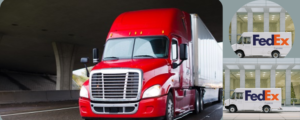[ad_1]
- Chinese automaker Nio has introduced a battery-swapping plan that makes the price of an electric car $10,000 cheaper.
- To make the plan a reality in the United States, it would require building out an infrastructure of expensive battery-swapping stations.
- As charging rates on vehicles increase, battery-swapping technology becomes more of an extravagance than a need.
While EV ranges increase and the charging infrastructure continues to grow, it’s still easier and quicker to refill an internal-combustion vehicle. For some, that convenience of just going to the gas station outweighs the benefits of owning an electric vehicle. Chinese automaker Nio is aware of this and has a solution to the road-trip refueling issue: subscription-based swappable batteries.
The company launched a Battery as a Service (BaaS) subscription model that lets owners deal with charging needs by simply having a fresh battery pack installed in a matter of minutes. Users have the option of signing up for different battery sizes and making the exchange at special Power Swap stations. The service allows Nio to sell vehicles without a battery. It’s essentially “batteries not included” on a large scale, and according to Nio, it can save buyers about $10,000 off the price of a vehicle.
Batteries are the most expensive portion of an electric vehicle. By removing that large chunk of chemicals sitting in the vehicle from the sticker price, Nio is addressing the higher-price pain point of EVs.
Swappable batteries also offer up traveling options. It takes an average of three to five minutes for the change to take place in one of Nio’s Power Swap stations. That’s on par with getting gas. Plus, it opens up the potential for changing out to different battery-pack sizes, so that a person could upgrade or downgrade their subscription as needs change. Currently, a 70.0-kWh pack with six swaps per month is priced at about $142. For those who don’t want to swap batteries but still need the pack, the cost is about $12 a month.
It’s cost-effective, convenient, and a quick way to get an EV back on the road especially during a long trip. And, at least in China, it’s working: Nio’s battery-swapping technology has been available since 2014, and as of June 2020, the company had completed 500,000 battery swaps.
But this kind of station is not likely to show up in the United States anytime soon. For one thing, the U.S. is still working on building out its own charging infrastructure. Right now Tesla has taken the lead on this, but not everyone who owns an electric vehicle owns a Tesla, and as battery capacities grow, the need for high-speed chargers has to be met before an entirely new system is put into place.
When asked about battery-swapping technology, Volkswagen spokesperson Mark Gillies told Car and Driver, “Our data indicates that only 3 to 5 percent of all EV drivers use fast charging as an option to get juice in their battery.” In other words, most people are still charging at home at night for their daily driving.
Gillies continued: “In addition to that: a battery-swapping facility is very expensive because it can take only one car at a time and you need to work in an automated fashion underneath the vehicle because of the dirt and snow, etc., that can get trapped in and around the undercarriage.”
Nevertheless, Volkswagen, Tesla, GM, and other automakers are working on making sure their vehicles charge more quickly as capacities increase. Automotive startup Lucid recently announced that its upcoming Air sedan, when connected to a quick enough charging station, could add 300 miles of range in 20 minutes. Still a bit slower than refilling a gas-powered vehicle, but impressive nonetheless.
As battery technology improves and the charging infrastructure grows, being able to swap out a battery in the United States seems less likely to happen or even be needed. The EV market is still relatively small in the United States, especially when compared to China. While the technical achievement and ability to subscribe to a battery sound awesome, automakers and charging companies based in the United States are rightly putting their focus on faster charging stations in more locations.
This content is imported from {embed-name}. You may be able to find the same content in another format, or you may be able to find more information, at their web site.
This content is created and maintained by a third party, and imported onto this page to help users provide their email addresses. You may be able to find more information about this and similar content at piano.io
This commenting section is created and maintained by a third party, and imported onto this page. You may be able to find more information on their web site.
[ad_2]
Source link


